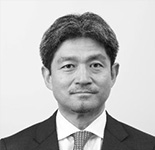
Masahiko Tezuka
IIRC Council Member
Chairman and President, Japanese Institute of Certified Public Accountants
I am very pleased to hereby extend my congratulations on the tenth anniversary of the establishment of the IIRC.
In 2011 the IIRC published the ground-breaking Discussion Paper on the future of corporate reporting and provided a rationale for integrated reporting to the world. As advocated in the paper: “The world has changed—reporting must too,” we have witnessed plenty of changes in corporate reporting during the decade to now.
In Japan, we have seen a dramatic increase in companies practicing integrated reporting. In 2019 there were 513 companies that published an integrated report, accounting for 58% of the total market capitalization of the first section of the Tokyo Stock Exchange. Your efforts have also affected our corporate disclosure system as seen in narrative reporting, which has been enhanced as a core measure of the capital market reform in Japan by making it work as a basis for sustained and constructive dialogue between companies and investors. As such, Japanese companies are accelerating their voluntary initiatives to embed good practices into their mandatory disclosures.
Additionally, corporate reporting has been changing in quality. It now focuses on the sustainable value creation of companies, has become more future-oriented, and clarifies business leaders’ insights on business model and strategy. The biggest reason for such qualitative changes is that the nature of corporate reporting is evolving from merely a matter of compliance into a matter of communication with investors. In other words, corporate reporting is changing its focus from reporting past financial results to communicating the unique value creation story linking the past, present to the future of a company. Such changes affect not only the form of corporate reporting but also the role and function expected of it. More specifically, business leaders and investors demand that corporate reporting helps make business activities and the decision-making processes more future-oriented, creative, dynamic, and integral.
Furthermore, companies need to establish a truly sustainable value creation cycle. This is possible only by factoring climate change and other global uncertainty issues faced by the capital market into corporate decision-making with long-term consideration and by appropriately and effectively utilizing human, intellectual, and other diverse forms of capitals. To this end, various types of information need to be collected, analysed, and evaluated to influence decision-making behaviour. In addition, integrated information of high quality and reliability will play a key role for boards of directors in setting a medium- to long-term direction for their companies and overseeing execution of business from multi-faceted perspectives.
The COVID-19 pandemic has reminded us of the importance of social capital underlying the existence of the public companies. As the world is amid significant change, I firmly believe that companies will further be expected to demonstrate their integrated thinking to spearhead the smooth adaptation to a new era of society. We in the accountancy profession are determined to help make corporate reporting more integrated and drive integrated thinking in companies and even in the capital market as a whole.
The Japanese Institute of Certified Public Accountants (JICPA) has worked closely with the IIRC to support the development and expansion of the integrated reporting concepts. The world of corporate reporting is transforming itself, and thus requires a stronger collaboration among a variety of bodies. I strongly hope that the IIRC, based on its 10-year experience of having successfully brought integrated thinking into the world of corporate reporting, will serve a role to lay a foundation of corporate reporting for the coming decade and beyond.


